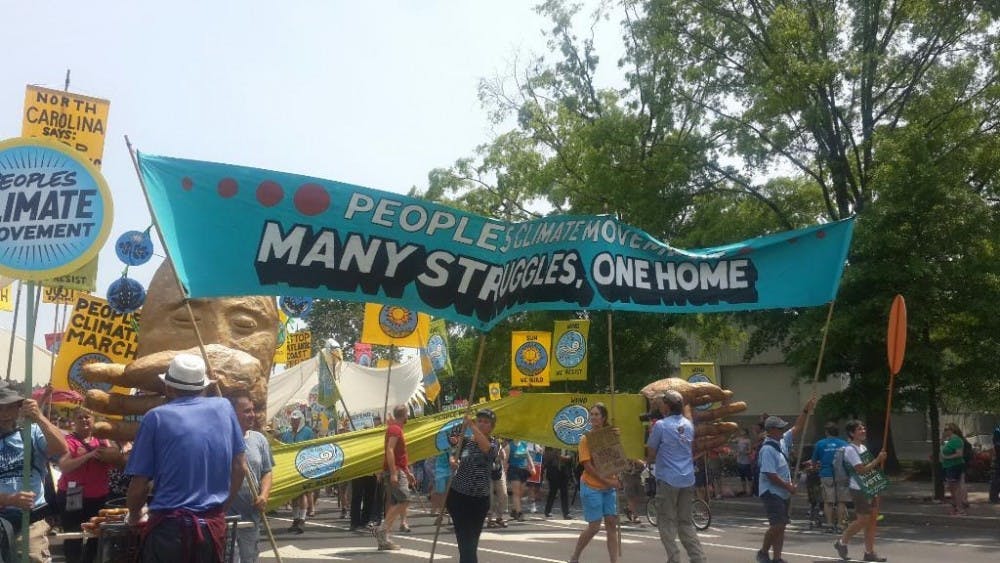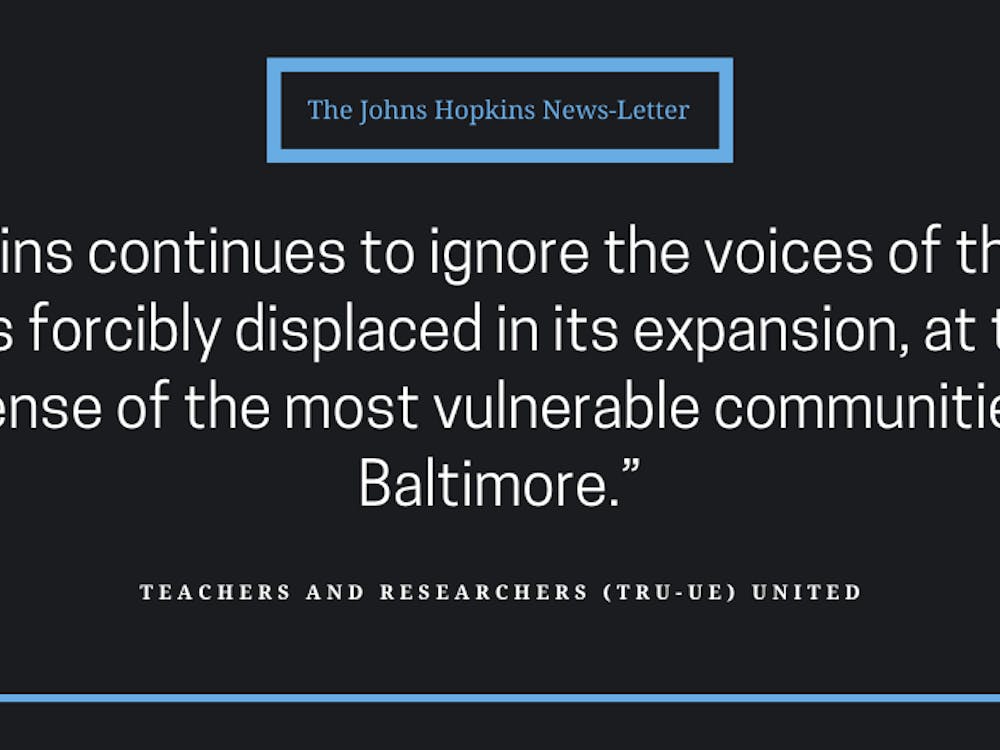Tens of thousands of protesters participated in the People’s Climate March on Saturday, April 29, in Washington, D.C., to voice their opposition to the Trump administration’s environmental policies.
In 90 degree weather, protesters marched from Capitol Hill, passing the White House on their way to the Washington Monument.
They chanted “this is what Democracy looks like” and carried signs with slogans such as “Earth to Trump, you’re killing us!” and “dirty air, dirty water, dirty Trump.”
Another sign featured pictures of monarch butterflies with the caption, “The only orange monarch we want.” Other signs did not directly criticize Trump, reading “no sides in climate,” “let solar be our light” and “renewable is doable.”
Some demonstrators wore costumes. For example, one woman dressed up as the Statue of Liberty promising clean air to American immigrants, while another person in a full-body T-rex suit bore a sign saying “Global Warming Rex Lives.”
Others wore green to demonstrate their environmental advocacy.
When passing the Trump International Hotel, protesters booed and chanted “shame, shame, shame.”
President Donald Trump has many people worried about his stance on climate change. In the first hundred days of his term, he has proposed budget cuts to the Environmental Protection Agency (EPA) and has attempted to ease pollution regulations on coal and oil.
Moreover, the EPA removed information and data about climate change from its website on Friday, April 28.
Freshman Nicole Stevens, who attended the march, criticized Trump for appointing Scott Pruitt as the EPA administrator.
“The fact that the leader of the EPA does not believe in climate change and the fact that he was appointed, is problematic because the EPA is definitely the big organization that would be able to enact legislation that could prevent climate change,” Stevens said.
Stevens also commented on the warm weather, saying that it helped reinforce their message.
“The fact that it was warmer and that many people showed up is a good sign because people really cared,” she said. “Since [the heat] could be attributed to climate change, I feel like it strengthened our message.”
Junior Darius Mostaghimi felt it was important that Hopkins students at the protest set an example for other young people.
“As a student from Hopkins, an incubator for future leaders and innovators of the world, I wanted to march to demonstrate that if the current generation of leaders won’t take action, at least the next one will,” he said.
Other protesters also emphasized the importance of young people acting as advocates. Emily Cross-Barnet, a senior at Washington College, represented her school’s environmental advocacy group and said that it was important for youth to be vocal about fighting climate change.
“I think that people get excited when the youth are excited,” she said. “They’re galvanized by the support of young people. We’re the future. I want to set a good precedent for the rest of our lives and for the younger generations too.”
Cobi Frongillo, a sophomore at the University of Massachusetts Amherst said the march was so important to him that he came despite having upcoming exams.
“It just seemed like a good place to make connections and stand up for something I believed in. I prioritized it over some finals,” he said.
Collaboration, Frongilon believes, is key to enacting change and actively working to help the environment.
“If we’re not working together as a nation it’s scary,” he said. “There’s so many issues that are coming really, really fast, and we’re not even beginning to look for a solution.”
Baltimore gardener Teresa Barnes expressed her disagreement with Trump but felt that the issue had been brewing since long before the presidential elections.
“I think that the Trump Administration is so blatantly disregarding even the existence of climate change but I think even before that we just haven’t been acting with nearly enough urgency,” she said.
Barnes added that the planet has the resources, desire and ability to address climate change and simply needs to take action.
“We have the technology to do it, we have the will to do it, we have people that need jobs that want to do it,” she said. “I think that we just need to be moving a lot more quickly towards a solution.”























Please note All comments are eligible for publication in The News-Letter.